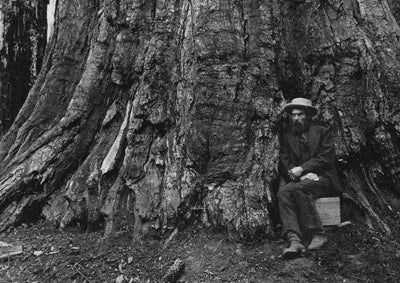"One of the best essay films ever made on a cinematic subject..." -- Jonathan Rosenbaum, Chicago Reader
Directed by Thom Andersen, with Fay Andersen and Morgan Fisher
Thom Andersen’s first feature announced the arrival of one of America’s most significant documentary auteurs. Eadweard Muybridge, Zoopraxographer is at once a biography of Muybridge, a re-animation of his historic sequential photographs, and an inspired examination of their philosophical implications.
If the film seems born fully-formed, this is in no small part due to intensive pre-conceptualization. Writing first in the pages of Film Culture in 1966, Andersen established the framework which would ultimately inform the completed work before it materialized. Its practical realization began soon thereafter as a UCLA thesis film in which he meticulously re-photographed more than 3,000 of Muybridge’s images. While historiographic efforts to reanimate these studies trace to at least J. Stuart Blackton’s The Film Parade in 1932, the exercise was in this case just a launching pad. Working in collaboration with prominent artists and scholars including filmmaker Morgan Fisher (who helped edit the final work), composer Mike Cohen, Muybridge biographer Robert Bartlett Haas, and narrator Dean Stockwell, Anderson took the visual idea as raw material and expanded it into a profound meditation on the nature of vision. The “zoopraxography” of the title speaks to both Muybridge’s practice of motion study--as distinct from photography--and his 1879 device, which enabled the images’ projection. As such, it foregrounds Muybridge’s role in the invention of cinema, and cinema itself as an illusion arising from stillness.
When Andersen’s laborious re-animation process exceeded time limits in UCLA’s workrooms, the production moved shop to the Dickson/Vasu studio, where it was completed on any stand not occupied by the 1970s Peanuts cartoons, which were shot there simultaneously. The film’s final funding came from a California Arts grant via KCET, who were so surprised by the results that they promptly gave the rights back to Andersen, wanting no part of it. He ultimately sold it to Dan Talbot of New Yorker Films, who recognized the young filmmaker’s unique voice as a cultural commentator and helped launch his career.
Ross Lipman
University of California, Los Angeles. Producer: Thom Andersen. Text: Thom Andersen. Cinematographer: Thom Andersen. Editor: Morgan Fisher. Music: Michael Cohen. With: Dean Stockwell (narrator), Sharon Hagen, Anje Bos.
35mm, color, 59 min.
Preserved in consultation with Thom Andersen from the original 16mm color reversal A/B rolls and the original 16mm fullcoat magnetic soundtrack. Laboratory services by The Stanford Theatre Film Laboratory, Audio Mechanics, Endpoint Audio Labs, NT Picture and Sound, Modern VideoFilm, Inc.







